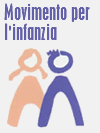HOME |
||||
| Organe de presse | ||||
| HOME | ||||
|
|
|||||||||||||||||||||||||
Droit
Fondamental
|
||||||||||||||||||||||||||
Shackled in a blood bath: gangrene
Hospital St John saved my life, says Marcel Vervloesem - The Werkgroep Morkhoven thanks their doctors for that.
Jacqueline de Croÿ 13 décembre 2008
He had arrived for a dialysis, the 1ier December, due to the lack of proper care in prison. The doctors of St John's hospital refused to allow him to return there. He awoke in a blood bath.
Ten days earlier, that hospital had interrupted an "euthanasia" and done him a cardiac catheterization. He has been brought back to prison, in the cell of a man who protests by spreading his excrements everywhere. He was brought back in emergency, in a state of semi coma, for an internal bleeding. The doctors discovered blocked kidneys. He had two surgeries in 48 hours and was sent back in the cell with the human excrements.
Ten days after, blood ran with floods. Two doctors and six nurses took turns to canalise this haemorrhage. They discovered gangrene, inevitable to a diabetic patient who is imposed conditions of hygiene that only pigs can stand. The surgery leaves him with a hole in which he can hide half of his fist, which represents the volume of flesh taken by gangrene which had to be removed. His survival now requires a half litre of blood per day. The healthy flesh is open, covered with a false skin, made up of metal plasma.
Marcel had a foot shackled, 24 hours on 24, may he be in wheelchair, fixed on a kidney machine, on stretcher or during the operations under general anaesthesia. Two guards were assigned to a constant presence, including when he was naked on the operating table, but also the night, under a constant electric light, under the pretext that these guards could not remain in the dark.
The doctors ended up being annoyed, to require that the shackles be removed and that the guards leave the room at the time of the consultations. They talked about the irreversible hole left by gangrene and about the kidneys which start again to function, slightly, though enough to give hope to survive without dialysis.
But the lack of sleep was not sufficiently evoked, or was not heard. Marcel asked to go back to prison… only to be able to sleep, in the dark of night, without shackles and to be able to recover from 5 hospitalizations in two months, of 6 surgical operations in 10 days, including 5 with general anaesthesia.
According to article 33 of the minimum rules for the treatment of prisoners adopted in 1957 by the Council of Europe, shackles can be used only by measure of precaution against an escape during a transferring, or on order of the director, covered by the doctor, if the other means of controlling a prisoner failed, in order to prevent hurting himself or others or from causing damage.












Editeur responsable: Fondation Princesses de Croÿ et Massimo Lancellotti - 10 Rue Faider - 1060 Bruxelles - Belgique - Droit de réponse: postmaster@droitfondamental.eu